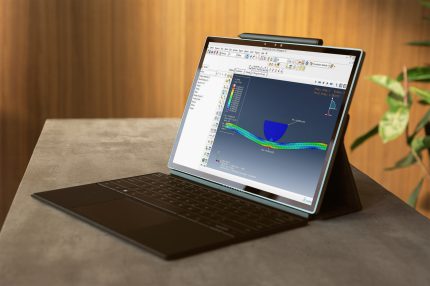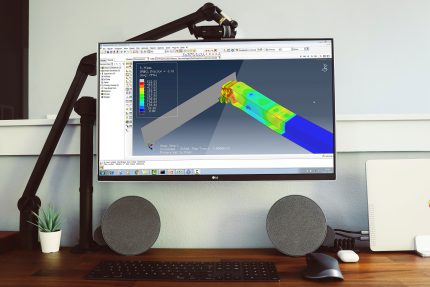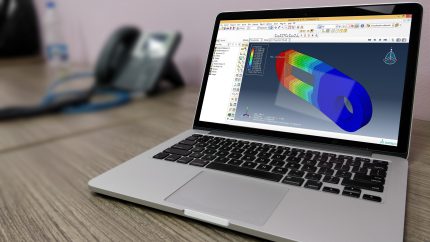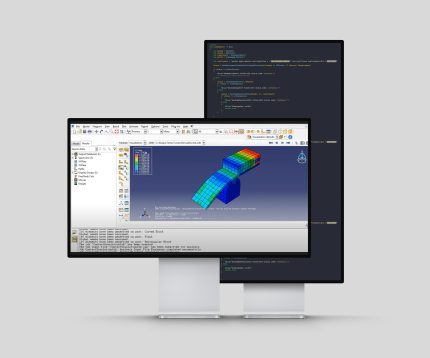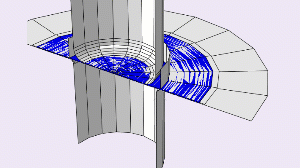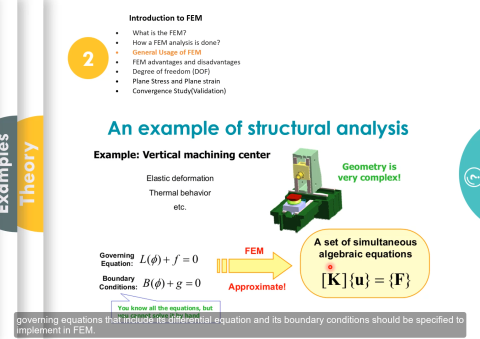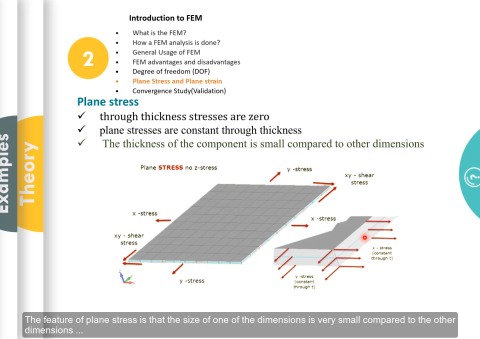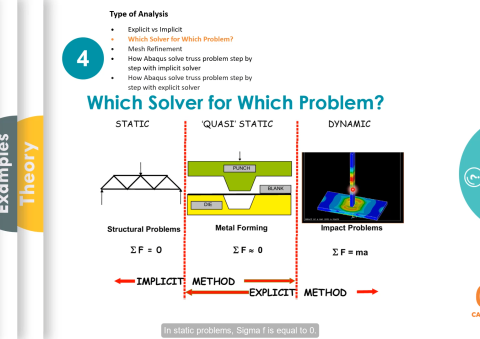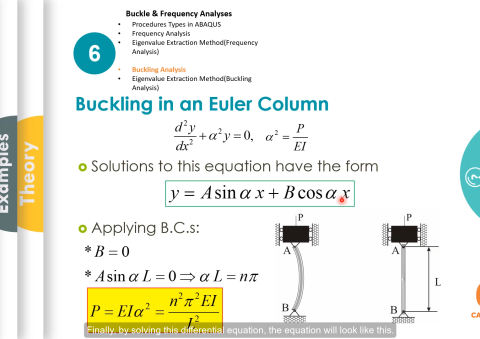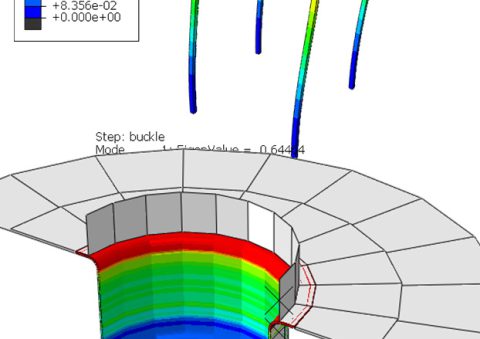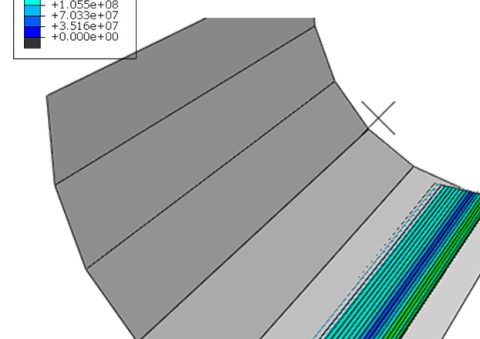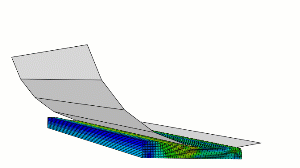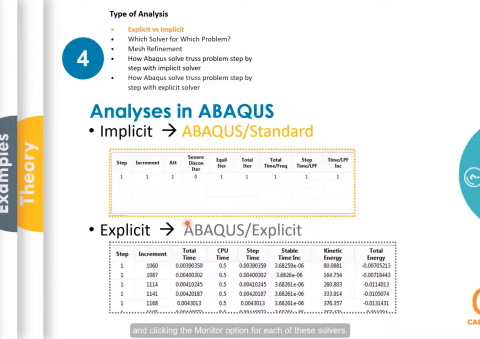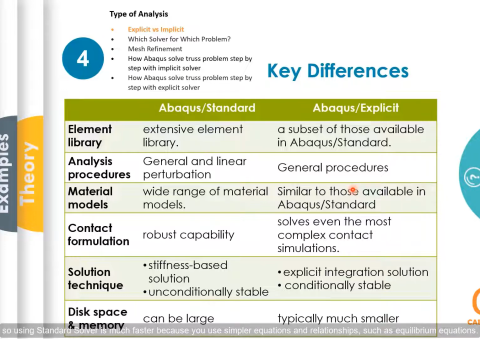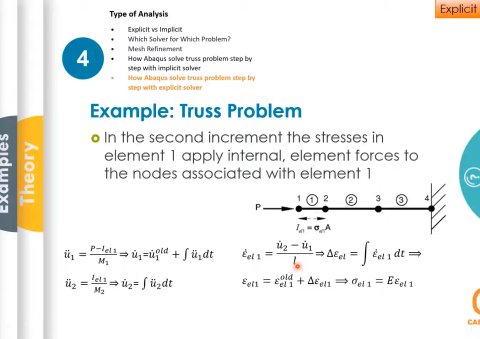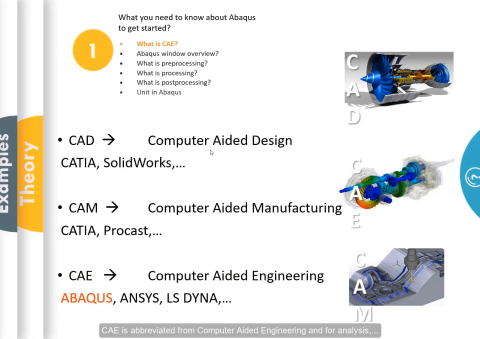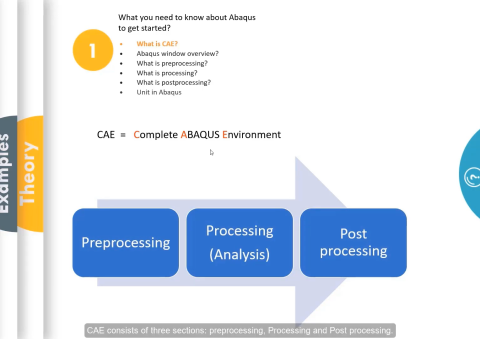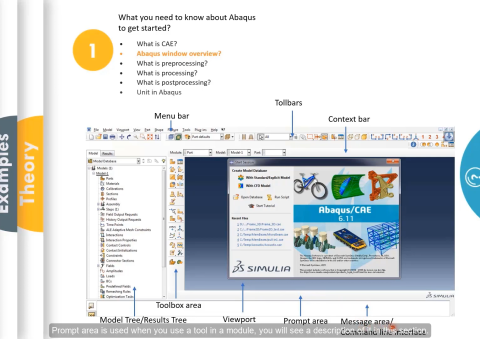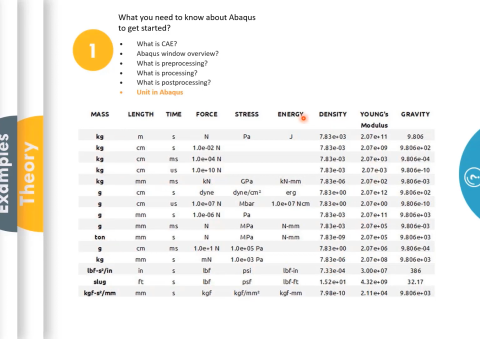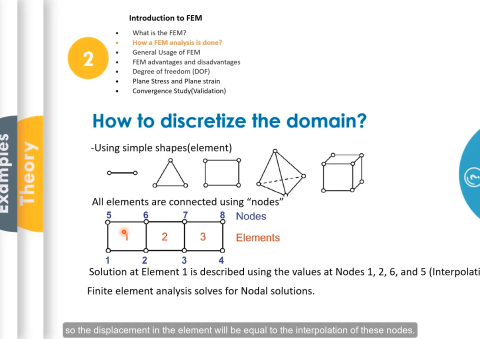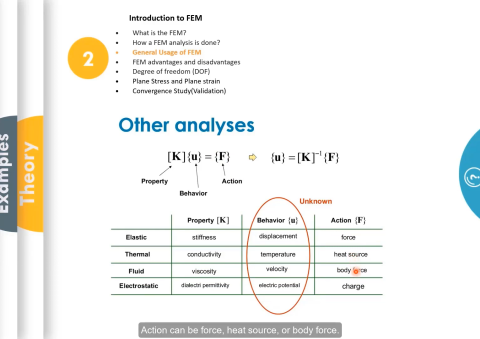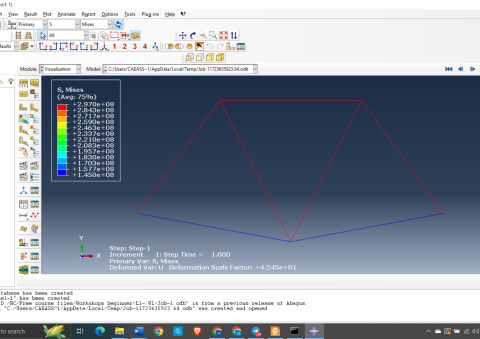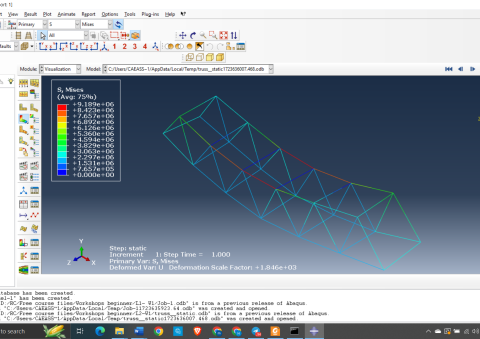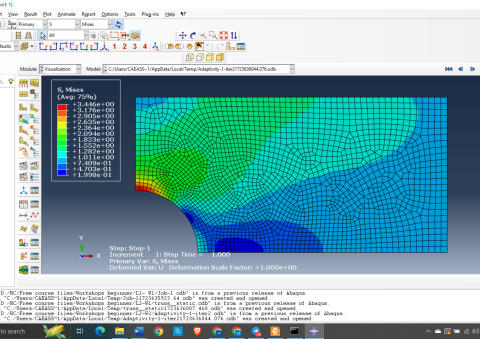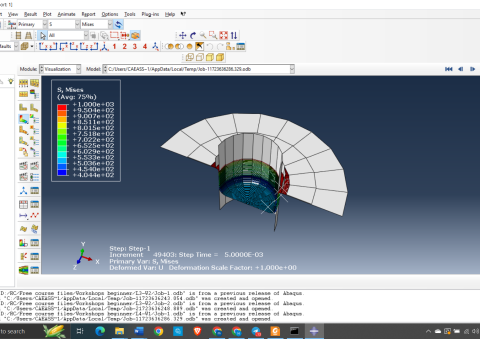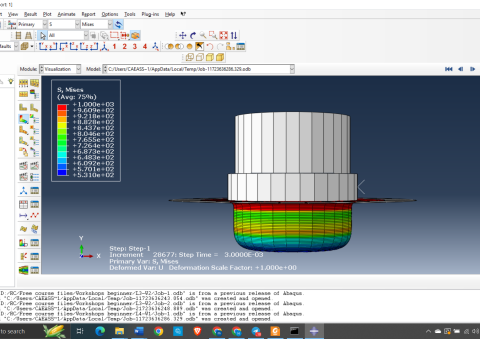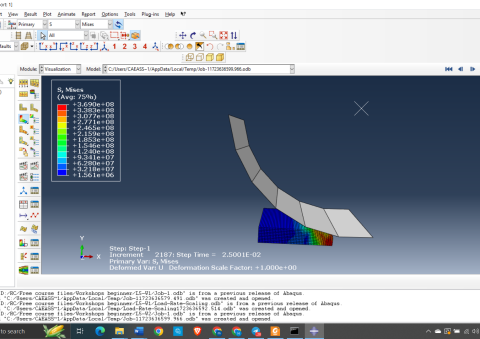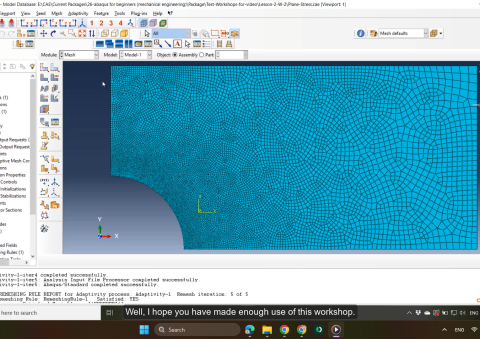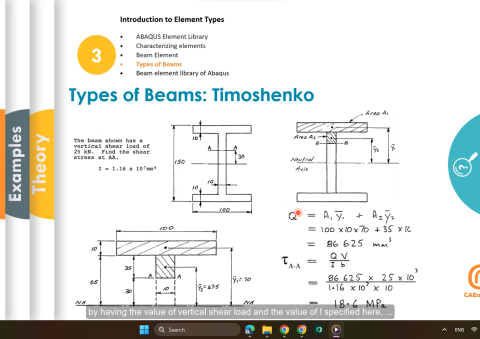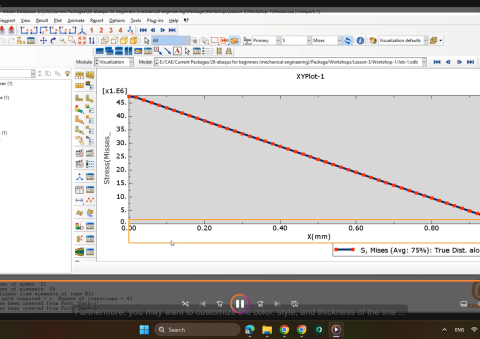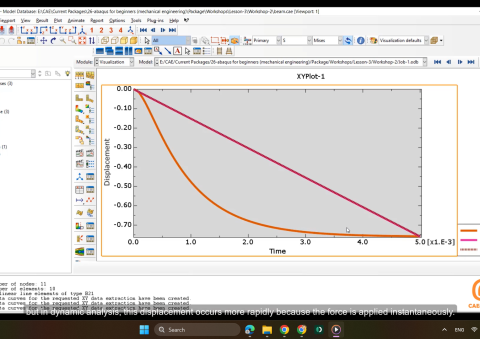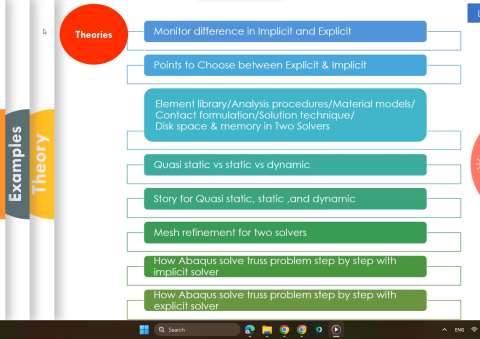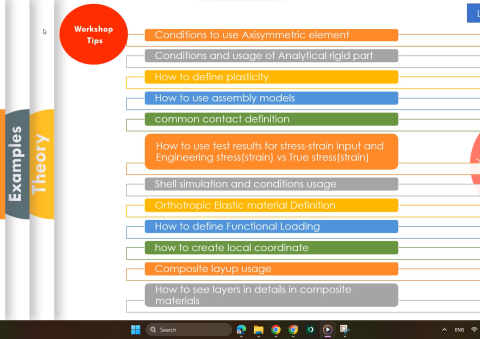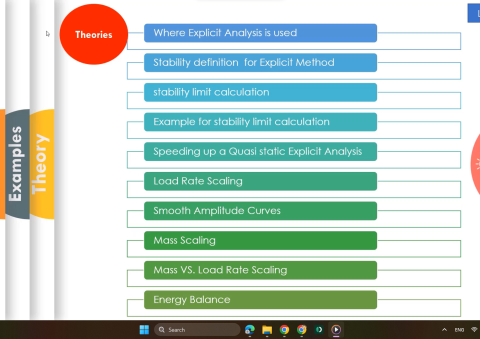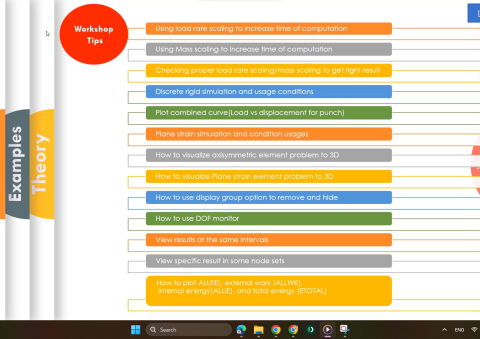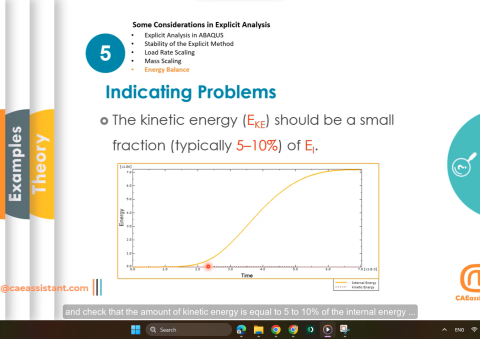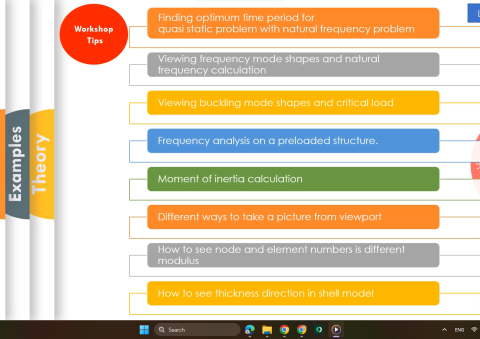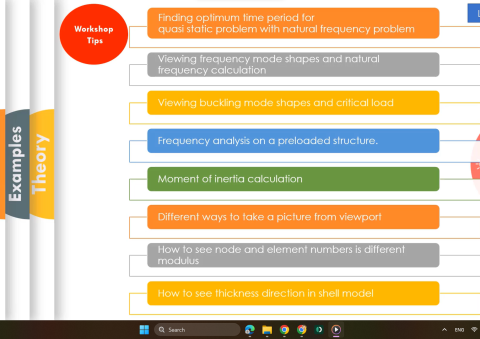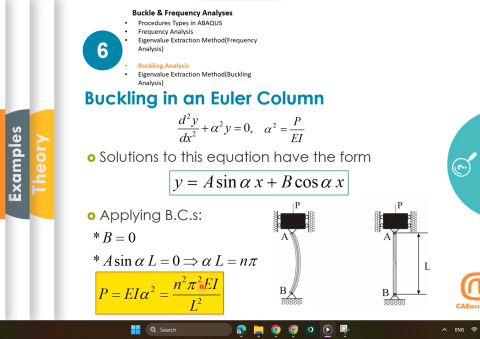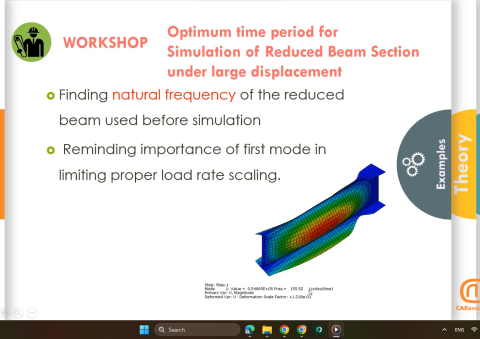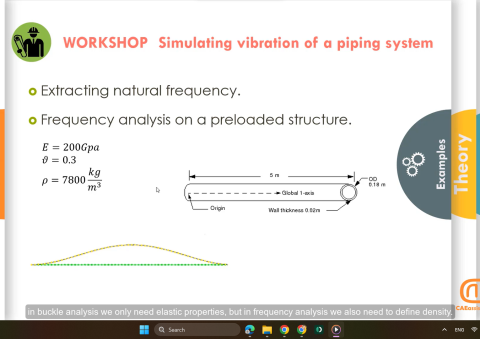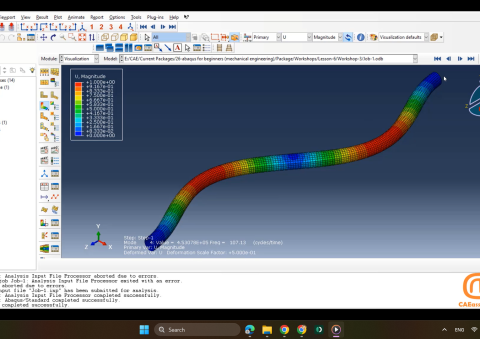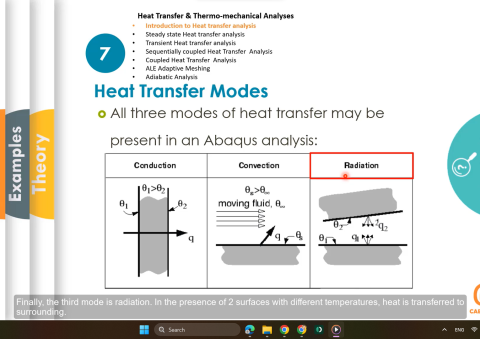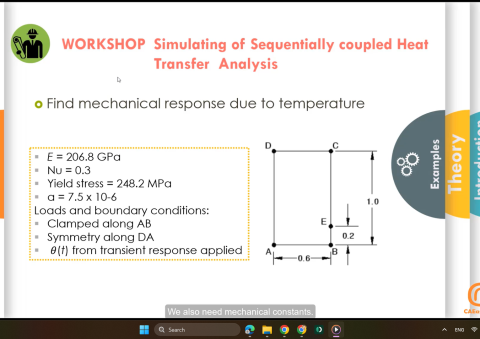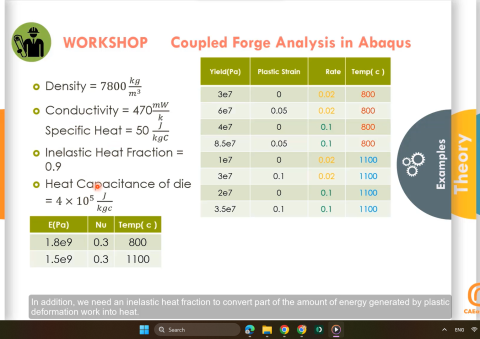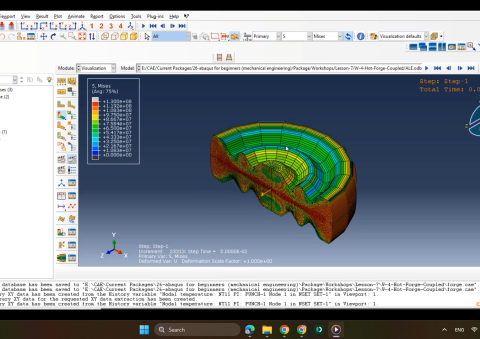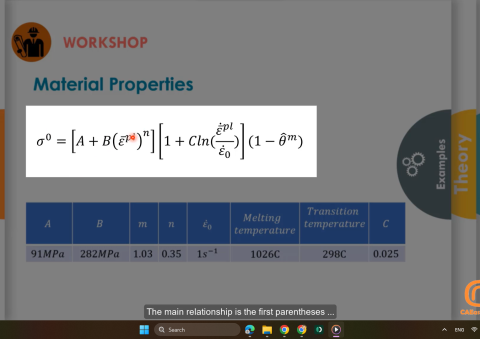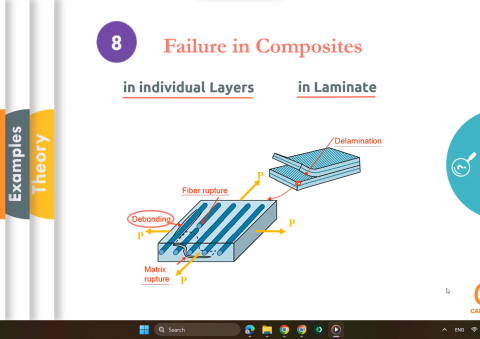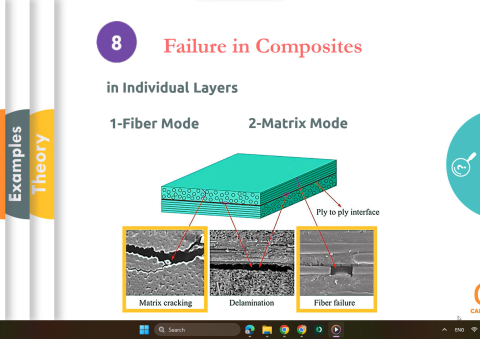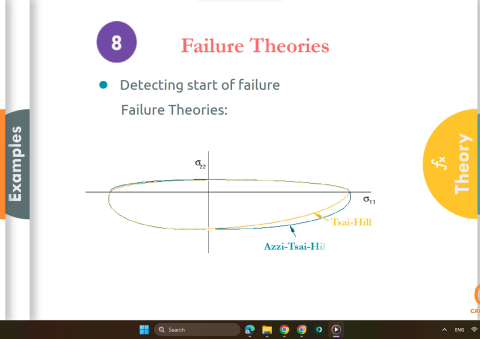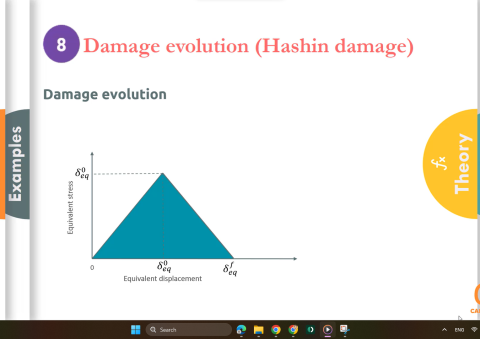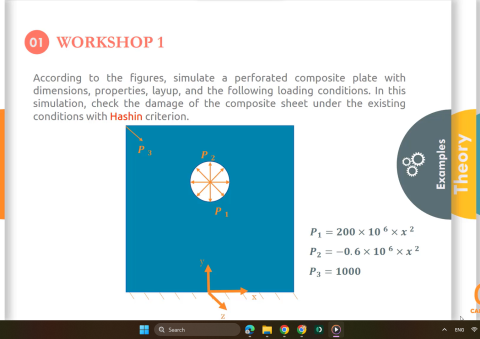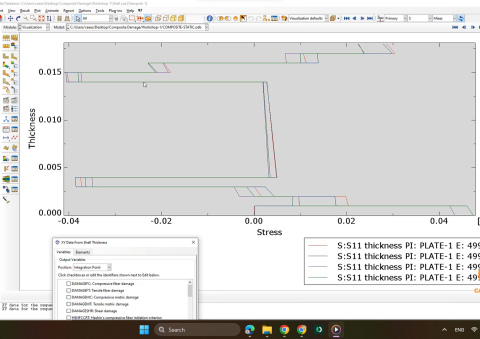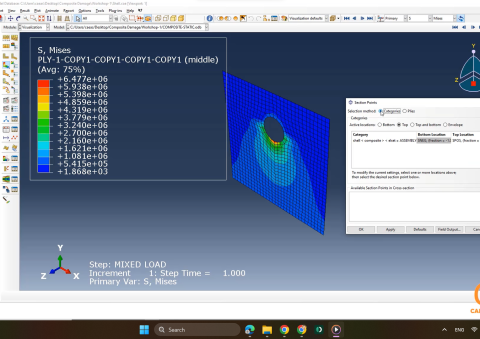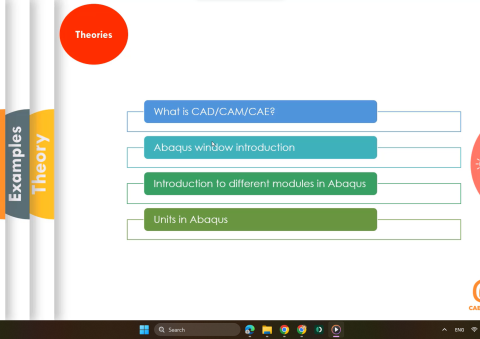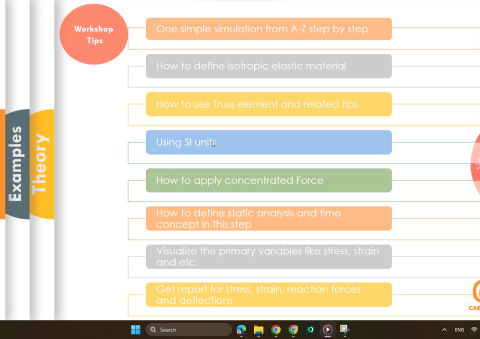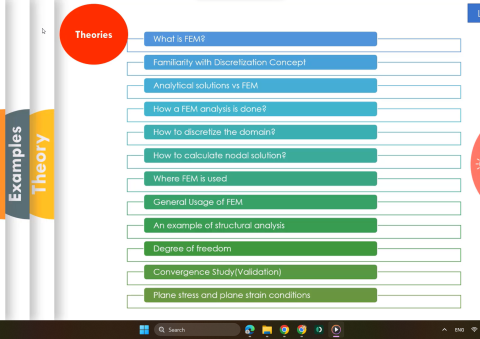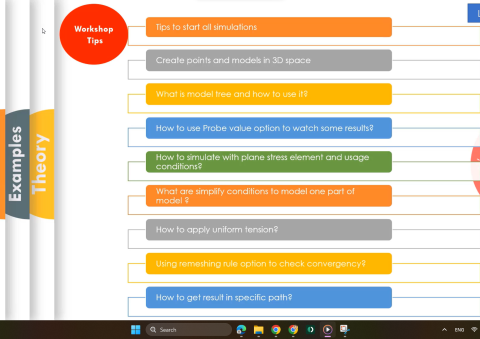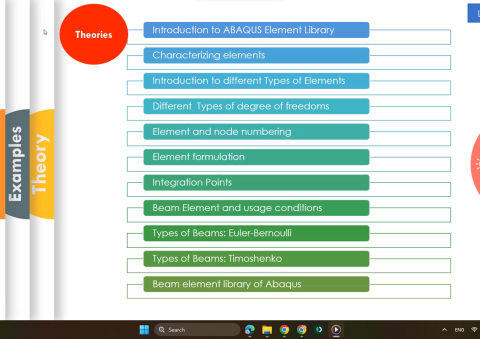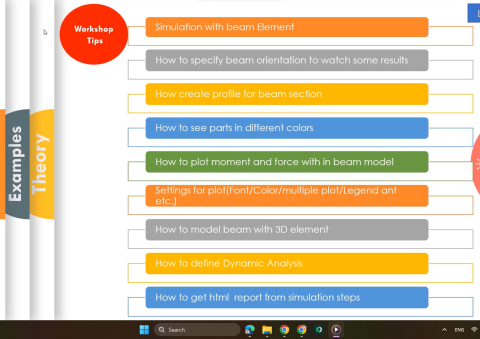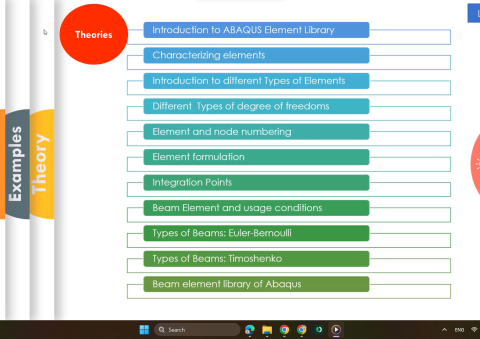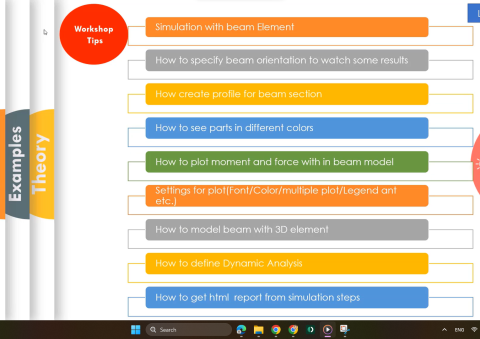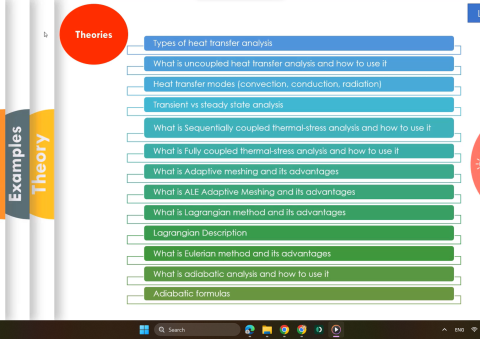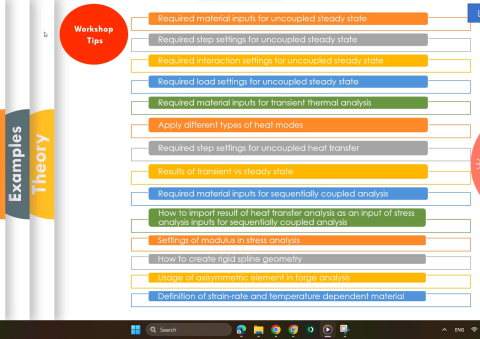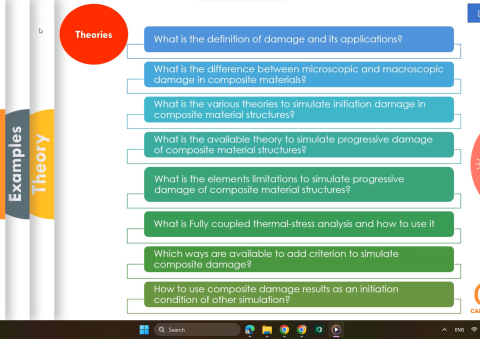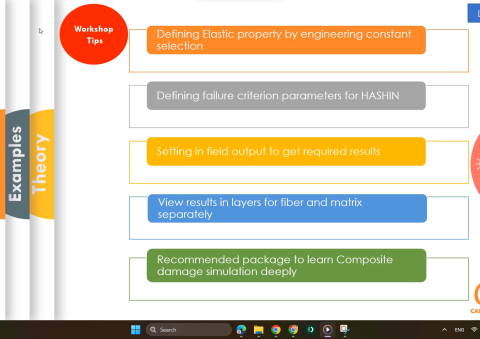Finite Element Analysis Course Overview
Finite Element Analysis course equips mechanical engineers with a comprehensive understanding of this method by Abaqus. With our carefully curated curriculum, you’ll gain a thorough understanding of both the theoretical foundations and practical applications.
Master implicit and explicit analysis methods, then gain proficiency in Abaqus software’s user-friendly environment. Through hands-on exploration, conquer various FEA simulations including static analysis (stress, strain, deformation), dynamic analysis (vibration, natural frequencies), heat transfer analysis, composite material analysis, buckle and frequency analysis, coupled temperature-displacement analysis, and more. Expert post-processing instruction empowers you to extract valuable insights, solving engineering challenges efficiently and precisely.
Master complex engineering challenges in Abaqus with this comprehensive Subroutines . Extend the software’s capabilities and create highly customized simulations.
The most practical subroutines are Dive deep into UMAT, VUMAT, USDFLD and VUSDFLD to craft unique material models, DLOAD and VDLOAD for intricate loading scenarios .
The Abaqus Python Course is designed to empower engineers and researchers with the art of Python scripting for Abaqus. If you’re looking to streamline workflows, automate tasks, and unlock the full potential of Abaqus simulations, this course might be the perfect fit for you.
The course is well-structured, with modules dedicated to specific areas like MDB scripting, output handling, and even creating plugins.
Skip the endless search! Our Finite Element analysis course provides everything you need: proven content, clear instruction, and hands-on practice. Learn & apply FEA skills fast – success is within reach.
By enrolling in this course you’ll learn:
Unearth the Fundamentals of Finite Element Analysis Course
Begin your journey in finite element analysis course by establishing a solid understanding of the underlying principles of finite element analysis. Grasp the concepts that underpin this powerful computational technique, laying the groundwork for effective problem-solving.
Master the Art of Implicit and Explicit Analysis
Explore the intricacies of both implicit and explicit analysis methods, two cornerstones of Finite Element Analysis (FEA). Delve into the strengths and applications of each approach, equipping yourself with the versatility to handle diverse engineering scenarios.
Unravel the Abaqus Software Ecosystem
Navigate the user-friendly Abaqus software environment, gaining proficiency in each module’s functionalities. Uncover the tools and techniques necessary to effectively model, simulate, and analyze engineering problems.
Dive into Practical Simulations: A Realm of Possibilities
Embark on a hands-on exploration of practical Finite Element Analysis (FEA) simulations, encompassing a broad range of engineering disciplines.
- Static Analysis: Uncover the behavior of structures under static loading conditions, mastering the principles of stress, strain, and deformation.
- Dynamic Analysis: Delve into the dynamic response of structures to time-varying loads, gaining insights into vibration, natural frequencies, and transient phenomena.
- Heat Transfer Analysis: Unravel the complexities of heat transfer mechanisms, including conduction, convection, and radiation, in engineering systems.
- Composite Material Analysis: Explore the intricacies of composite materials, simulating their behavior under various loading conditions and failure criteria.
- Buckle and Frequency Analysis: Investigate the stability of structures under compressive loads, determining critical buckling loads and natural frequencies.
- Coupled Temperature-Displacement Analysis: Uncover the interplay between thermal and mechanical phenomena, simulating coupled temperature-displacement problems.
Post-Processing and Result Analysis: Unveiling the Story Behind the Numbers
Master the art of post-processing and result analysis, transforming raw simulation data into meaningful insights. Learn to visualize, interpret, and extract valuable information from simulation results, empowering you to make informed engineering decisions.
his course appears to be a comprehensive guide to Abaqus subroutine tutorial, which are a powerful tool for extending the capabilities of Abaqus software. The course covers a wide range of subroutines, including:
Material Subroutines:
- UMAT and VUMAT: These subroutines are used to define complex material models that are not available in Abaqus by default.
- USDFLD and VUSDFLD: These subroutines allow users to define material properties that change based on various conditions.
Load Subroutines:
-
- VDLOAD and DLOAD: These subroutines are used to define complex loads.
By enrolling in this Python FEM course you’ll learn:
Master Python Scripting Fundamentals: Abaqus Python Course
Gain a solid foundation in Python, including variables, data types, control flow, functions, and object-oriented programming.
Automate Complex Abaqus Workflows:
Effortlessly create and manipulate intricate Abaqus models using Python scripts.
Boost Efficiency and Innovation:
Automate repetitive tasks, design optimization studies, and parametric analyses to accelerate your workflow and explore design possibilities.
Extend Abaqus Functionality:
Build custom graphical user interfaces (GUIs) and kernel plugins to further extend Abaqus capabilities and personalize your experience.
Perform In-Depth Analysis:
Extract and analyze critical simulation data with precision using Python libraries and scripting techniques.
Python for Mechanical Engineers
Need More information? Watch This
Are you expert in finite element analysis? Check out our tutorials
Lesson 1-1: ABAQUS/CAE Introduction
Lesson 1-2: Finite Element Method Introduction
Lesson 1-3: Different elements introduction in ABAQUS
Lesson 2-1: Comparing Explicit and Implicit Analysis
Lesson 2-2: Some consideration in EXPLICIT Analysis
Lesson 3-1: Part Module
Lesson 3-2: Property Module
Lesson 3-3: Assembly Module
Lesson 3-4: Step Module
Lesson 3-5: Interaction Module
Lesson 3-6: Load Module
Lesson 3-7: Mesh Module
Lesson 3-8: Job Module
Lesson 3-9: Visualization module
Workshop 4-1: buckle analysis
Workshop 4-2: frequency analysis
Workshop 4-3: Heat transfer analysis
Workshop 4-4: Coupled temperature-displacement analysis
Workshop 4-5: Simulation of composite material in Abaqus
Lesson 5-1: How to use UMAT/VUMAT subroutines
Workshop 5-1: Writing UMAT subroutine for isotropic isothermal elasticity
Workshop 5-2:Writing VUMAT subroutine for isotropic hardening plasticity
Lesson 5-2: How to use USDFLD/VUSDFLD subroutines
Workshop 5-3: Simulation of elastic properties of soil in different depth with USDFLD subroutine
Lesson 6-1: How to use DLOAD/VDLOAD subroutines
Workshop 6-1: Simulation of the effect of vehicle loading on the bridge
Lesson 7-1- Introduction to Abaqus Python scripting
Lesson 7-2- Python language programming
Lesson 7-3: Starting of scripting
Workshop 1-1- simulation of a cantilever beam (Abaqus python)
Workshop 1-2- Running a number of jobs sequentially
Our team of CAE Assistant instructors, renowned experts in their respective domains, will deliver each section of the course, providing you with unparalleled knowledge and insights.
Finite Element Method Course Certificate
Upon successful completion of this Finite Element Method course, you will receive a course completion certificate. This certificate guarantees your skills with the amount of time spent, skills trained, and can be verified online.
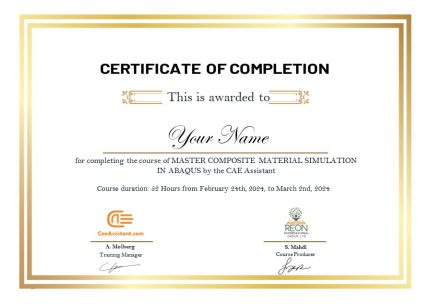
This finite element method course is perfect for:
➤ Mechanical engineers seeking a comprehensive understanding of FEA: Whether you’re new to FEA or looking to refine your skills, this finite element method course provides a strong foundation in both theory and practical application.
➤ Professionals seeking to master Abaqus software: Our structured approach ensures you gain proficiency in Abaqus’ user-friendly environment, equipping you to tackle real-world engineering challenges.
➤ Busy engineers who value their time: This course eliminates the need to sift through unreliable online resources, saving you valuable time and frustration. You’ll get everything you need in a single, well-organized package.
➤ Anyone who wants to solve engineering challenges with precision and efficiency: By mastering FEA with Abaqus, you’ll gain the skills to analyze and optimize designs, leading to more efficient and effective engineering solutions.
Ready to take your FEA skills by Abaqus to the next level? Enroll today! First Session for free!
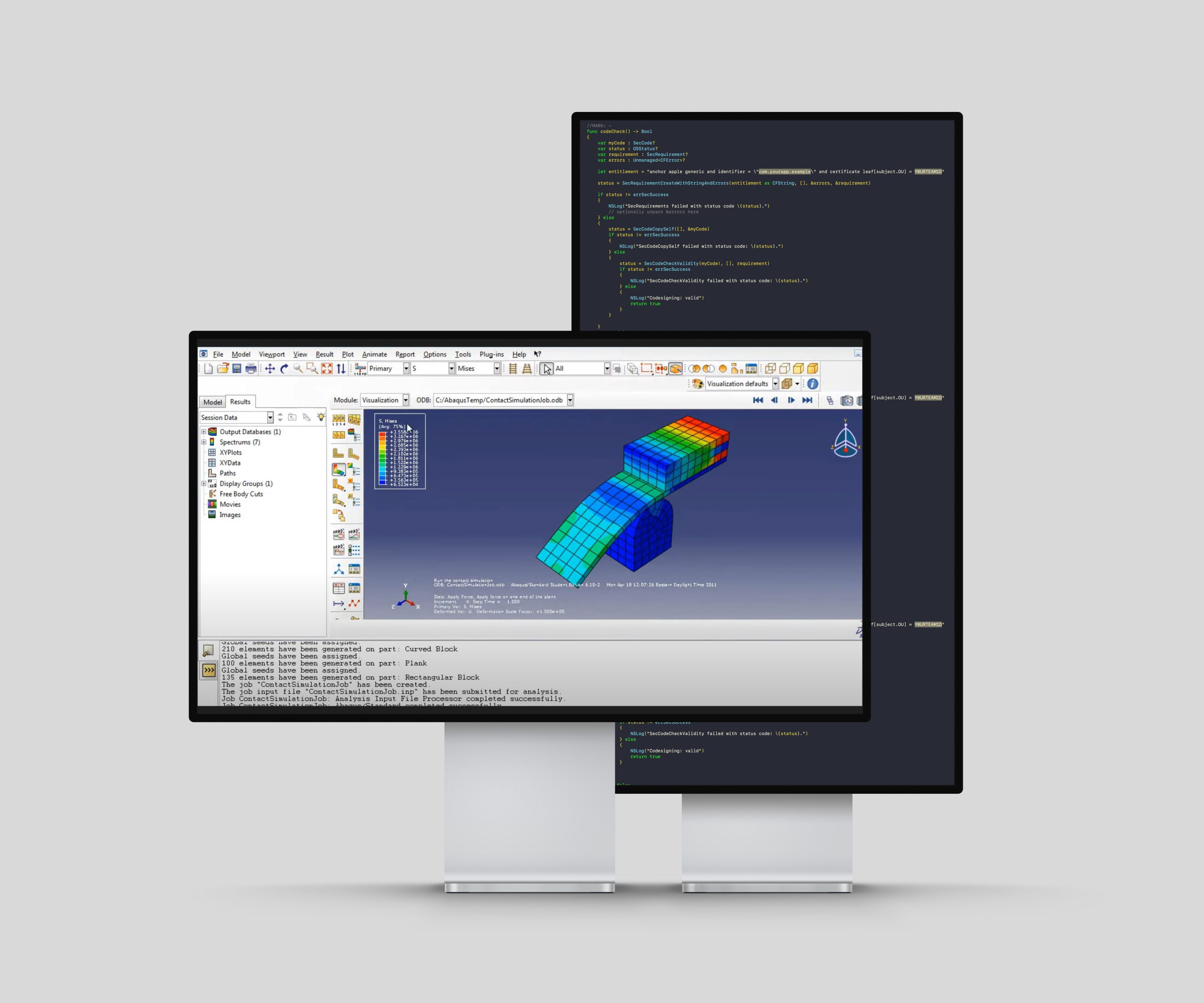
Why Choose CAE Assistant for Finite Element Analysis Course | Comprehensive Mastery FEM Course
Frequency Asked Questions
This course is designed for engineers, scientists, and analysts who want to learn or improve their skills in sequential simulating using Abaqus software.
A basic understanding of finite element analysis (FEA) concepts and some experience with Abaqus software and Python scripting would be beneficial. However, the course starts with fundamentals and gradually progresses to more advanced topics.
The course likely utilizes a combination of video lectures, interactive workshops, and downloadable materials.
The course description doesn’t explicitly mention assignments or exams. It highlights workshops as a key learning element. You can check the course website or contact the provider for details.
The course likely utilizes a combination of video lectures, interactive workshops, and downloadable materials.




